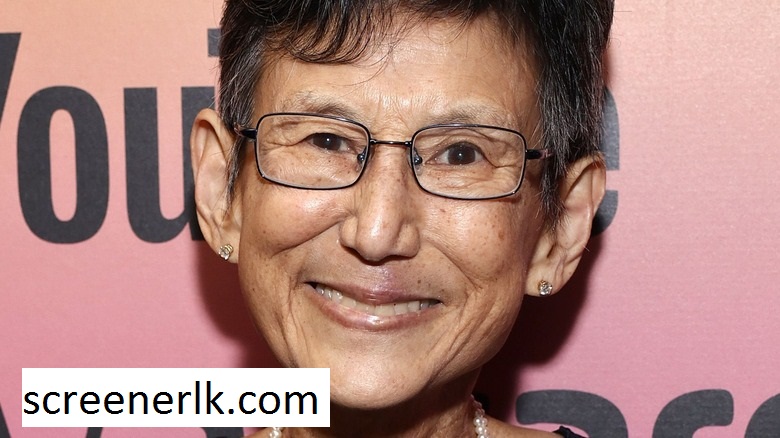WASHINGTON, D.C. – They enrolled in the online ‘Rebel Training’ from various locations such as Colorado, Michigan, New York, and Tennessee. Over 70 participants received advice on key arguments they could employ in combating book bans within their communities.
“Book prohibition… seems to persist,” remarked Julie Womack, the organizing director for Red, Wine & Blue, commencing the hour-long training in mid-December. “It continues to propagate, making it highly probable in your school district.”
This session marked one of several organized by Red, Wine & Blue, a grassroots organization rallying suburban women, many of whom lean toward liberalism, as part of its endeavor to resist the surge of book bans. Nationally and locally, numerous groups have initiated initiatives to counter attempts to prohibit or confine books, particularly those authored by individuals of diverse backgrounds or addressing topics like racism, gender identity, and sexuality.
These parents, civil rights advocates, and teacher supporters launched mobile libraries offering prohibited books, developed resources to empower activists, organized virtual book gatherings, and facilitated giveaways of banned books. Representative Ayanna Pressley, D-Mass., proposed legislation to oppose the bans.
These actions coincide with the increasing number of states and local authorities, including educational boards, implementing regulations to forbid or limit the books accessible to teachers and available in libraries.
Advocates of these initiatives claim they safeguard individuals, especially young readers, from detrimental teachings and assert that parents should wield greater influence over their children’s education. Those in opposition contend that the bans are a component of a cultural conflict that necessitates a response.
“Prohibited books are merely scratching the surface,” remarked Deborah Menkart, leading Teaching for Change, an advocacy organization. “The scope of what’s being banned or censored extends far beyond that.”
Prepared and structured to resist.
Womack and others provided suggestions — encourage attendance at school board meetings, combine personal narratives with statistics, and highlight the titles of prohibited books, such as those featuring civil rights figures like Rosa Parks and Martin Luther King, Jr.
“We simply need to be prepared and structured to push back,” she conveyed to the audience on Thursday.’
The organization also arranges additional virtual gatherings, such as forums where presenters—occasionally authors—address the topic of book prohibitions. Every first Wednesday of the month, it facilitates a digital book gathering to converse about a prohibited book. The December pick was “1619 Project: Born on the Water” by Nikole Hannah-Jones and Renée Watson.
The collective launched its “Book Ban Busters” initiative in February 2022 after members expressed apprehension about the rising occurrences of book prohibitions.
“That was our method to support individuals in resisting these highly radical assaults,” Womack conveyed to USA Today.
Several nationwide organizations also collaborated to oppose the bans.
The National Urban League participates in a coalition that urges local activists and parents to combat book prohibitions.
Marc Morial, president of the civil rights organization, addressed a predominantly civil rights activist audience at an awards dinner in Washington, D.C., earlier this month, highlighting that Black History is facing challenges, with book bans being a part of the struggle.
“Gift your children a banned book for Christmas,” Morial urged the enthusiastic audience.
Attempts to prohibit books increasing
Apart from the yearly “Banned Books Week” in October, last year, the American Library Association initiated “United Against Book Bans,” an accessible online resource to aid individuals in resisting bans within their communities. This toolkit offers optimal methodologies and notifications in case of a proposed book prohibition in a locality.
“We must mobilize and empower community members—the voters, the taxpayers residing in the community, those who utilize the library, whose rights are being infringed upon by book censorship,” emphasized Deborah Caldwell-Stone, director of ALA’s Office for Intellectual Freedom.
She stressed the importance of their participation in school board meetings, adding their voices to the ongoing discussions.
Caldwell-Stone highlighted that the association was unprepared for the orchestrated and coordinated endeavors in recent years aimed at banning books.
Previously, the association received 300 to 400 reports annually concerning attempts nationwide to remove books from libraries or contest displays, Caldwell-Stone explained. However, in 2020, the count rose to 729 and escalated further to 1,269 in 2022. She noted that most banned books revolved around LGBTQ communities and people of color.
Following the killing of George Floyd in 2020, a growing number of educators began incorporating inclusive resources, including materials highlighting African Americans and Asian Americans, as noted by Ananya Sen, assistant professor of information teaching and management at Carnegie Mellon University in Pittsburgh.
Sen indicated that subsequent to teachers’ endeavors, there was a surge in book bans, notably occurring between July and December of 2021, with many bans initiated at the local level. Sen is among the researchers involved in a study on book bans conducted by Carnegie Mellon University and George Mason University.
Some book bans actually boosted their readership, according to Sen. Catalogs of banned books circulated widely on social media platforms. Certain groups initiated online book clubs specifically dedicated to reading banned literature.
“Social media discussions seem to significantly contribute to raising awareness about this matter,” noted Sen.
At an event earlier this year, historians and attendees at the Association for the Study of African American Life and History conference in Jacksonville, Florida, read excerpts from banned books at a park.
Since spring 2021, Teaching for Change has utilized social media for its #TeachTruth campaign, sharing a compilation of recommended banned books centered on themes of social justice and civic engagement.
The organization produced postcards, posters, and buttons advocating for the teaching of banned books, and in partnership with the African American Policy Forum, they designed a traveling art exhibit featuring banned books affixed to bookshelves.
Menkart expressed concern about both bans and legislation that restricts the curriculum in public schools.
“Teachers are exercising self-restraint well beyond the list of prohibited books,” she remarked.
She further elaborated: “The banning of books is occurring within a broader context where there’s a strong push to censor the truthful teaching of U.S. history, especially concerning racism, as well as the current honest depiction of Palestine. It’s crucial to acknowledge that the list and books themselves don’t encompass the entirety of the issue.”
Do parents deserve greater input?
Certain supporters of book limitations critique news sources and activists for labeling these endeavors as bans. They contend that these measures are intended to guarantee that books utilized in schools align with appropriate age levels.
“It shouldn’t become a divisive matter to emphasize that children benefit when their families are aware of their experiences,” remarked Nicole Neily, president and founder of Parents Defending Education, in written testimony submitted to the U.S. Senate Judiciary Committee in September. “This isn’t complicated: the more knowledge parents possess, the more effectively they can aid their children, both in terms of emotional support and academics.”
Numerous states, such as Texas and Oklahoma, have implemented or suggested measures that impose limitations on the teaching of Black history or restrict the use of specific books. Advocates argue that some books are offensive, emphasizing that significant aspects of Black history are already included in school curricula.
Jonathan Butcher, a senior fellow at the Heritage Foundation, a conservative think tank based in Washington, highlighted previous contentions regarding school curricula, including reading materials. He asserted that determining what should be taught to children, considering age-appropriate content, falls under the responsibility of adults.
“A school board retains the authority to determine the educational materials presented to students, as long as it remains within the parameters set by existing state and federal civil rights laws,” stated Butcher.
Writers of prohibited books assembled at Historically Black Colleges and Universities (HBCUs).
Close to twenty Black writers, all females, convened in November in Jackson, Mississippi, to address attendees at the 50th annual Phillis Wheatley Poetry Festival. Among these authors were individuals who had authored books that have faced bans.
The gathering, organized by the Margaret Walker Center at Jackson State University, showcased a discussion panel on banned literature. One of the panelists was Angie Thomas, the author of the banned book “The Hate U Give.” Over 400 individuals attended this panel.
“The timing aligned perfectly,” expressed Robert Luckett, director of the center. “It presented an incredible opportunity for us at that moment to address an issue that has persisted throughout American history.”
In April, the Transformative Justice Coalition distributed prohibited books in a neighborhood in Houston, George Floyd’s hometown. Collaborating with various organizations, they conducted book giveaways in states where bans were in place, including Florida, Illinois, Ohio, Virginia, and Wisconsin. These efforts were in addition to their initiatives to encourage civic participation, such as voting.
“It’s a form of resistance. Our determination cannot be halted. This holds a historical significance as our communities were once deprived of the right to read,” emphasized Barbara Arnwine, president and founder of the national racial justice organization.
Congressional legislators are advocating to halt book prohibitions.
Those against book bans have also put forth bills in an attempt to curb their increase.
Recently, Pressley presented the latest Democratic proposal, named the “Books Save Lives Act.”
The bill seeks, among other objectives, to mandate a diverse array of books in both public and school libraries. It also strives to categorize prejudiced book bans as breaches of federal civil rights laws and requests the U.S. Government Accountability Office to assess the effects of book bans on marginalized communities.
Pressley commented in a statement that the legislation “counters this alarming pattern. Every individual who reads deserves to encounter their own reflection within our literature.”
Womack, from Red Wine & Blue, mentioned that their book club plans to deliberate on “The Kite Runner” by Khaled Hosseini during its upcoming session in January. Additionally, they have scheduled further training sessions to combat book bans.
“I anticipate it continuing,” Womack mentioned regarding the book ban movement. “Undoubtedly, there will be additional actions taken. We’ll persist in our efforts.”










